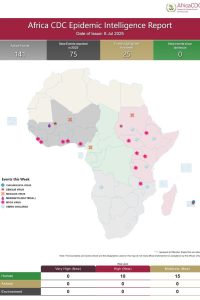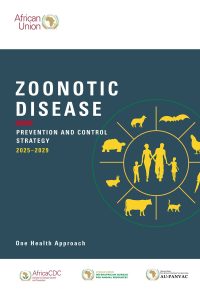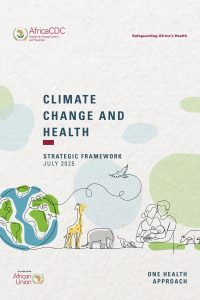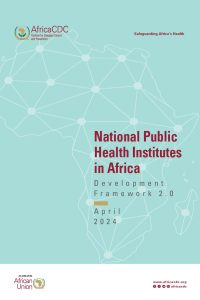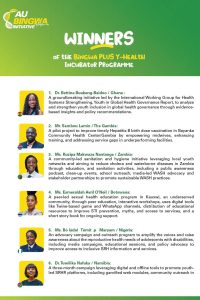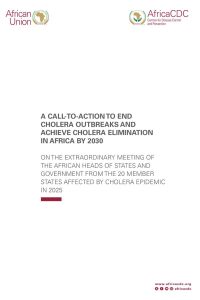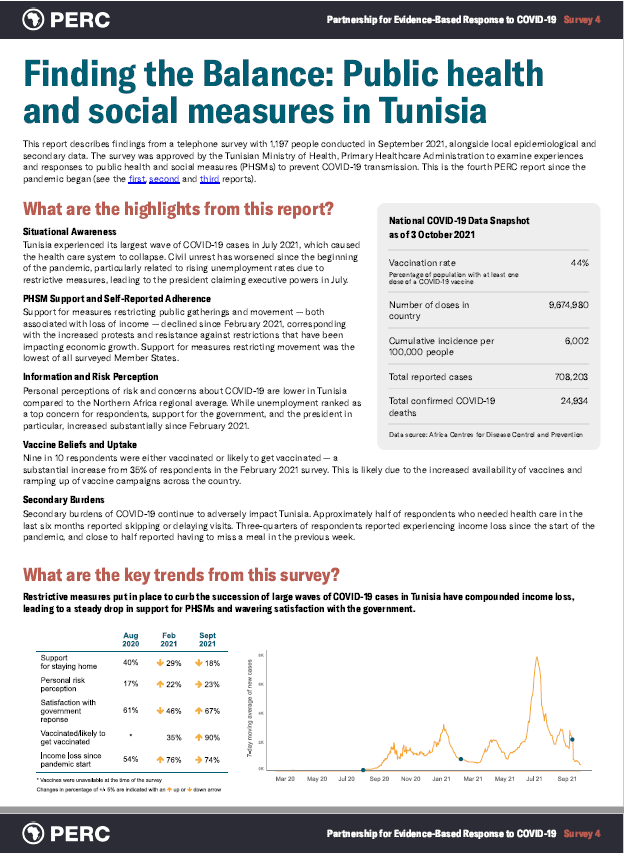
- Version
- Download 1791
- File Size 1.02 MB
- File Count 1
- Create Date 2 November 2021
- Last Updated 2 November 2021
Finding the Balance: Public health and social measures in Tunisia
This report describes findings from a telephone survey with 1,197 people conducted in September 2021, alongside local epidemiological and secondary data. The survey was approved by the Tunisian Ministry of Health, Primary Healthcare Administration to examine experiences and responses to public health and social measures (PHSMs) to prevent COVID-19 transmission. This is the fourth PERC report since the pandemic began (see the first, second and third reports).
What are the highlights from this report?
Situational Awareness
Tunisia experienced its largest wave of COVID-19 cases in July 2021, which caused the health care system to collapse. Civil unrest has worsened since the beginning of the pandemic, particularly related to rising unemployment rates due to restrictive measures, leading to the president claiming executive powers in July.
PHSM Support and Self-Reported Adherence
Support for measures restricting public gatherings and movement — both associated with loss of income — declined since February 2021, corresponding with the increased protests and resistance against restrictions that have been impacting economic growth. Support for measures restricting movement was the lowest of all surveyed Member States.
Information and Risk Perception
Personal perceptions of risk and concerns about COVID-19 are lower in Tunisia compared to the Northern Africa regional average. While unemployment ranked as a top concern for respondents, support for the government, and the president in particular, increased substantially since February 2021.
Vaccine Beliefs and Uptake
Nine in 10 respondents were either vaccinated or likely to get vaccinated — a substantial increase from 35% of respondents in the February 2021 survey. This is likely due to the increased availability of vaccines and ramping up of vaccine campaigns across the country.
Secondary Burdens
Secondary burdens of COVID-19 continue to adversely impact Tunisia. Approximately half of respondents who needed health care in the last six months reported skipping or delaying visits. Three-quarters of respondents reported experiencing income loss since the start of the pandemic, and close to half reported having to miss a meal in the previous week.
Attached Files
| File | Action |
|---|---|
| Finding the Balance: Public health and social measures in Tunisia | Download |

